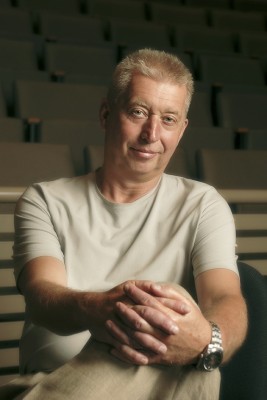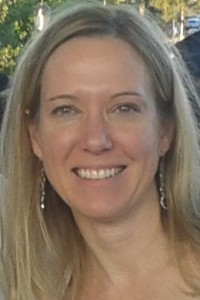Michael Thaut, director of the Center for Biomedical Research in Music at Colorado State University and pioneer in the neuroscience of music and neurologic music therapy, has received a major honor from across the pond.
“This was a huge and unlikely honor,” Thaut said. The Oxford Handbook of Neurologic Music Therapy, co-edited and co-authored by Thaut, was short-listed as one of three finalists to receive the much-coveted best book award from the British Medical Association, out of all neurology books published in 2014. The annual award ceremony took place Sept. 3 in London, and the Handbook received second place.
Thaut co-edited the book with internationally renowned neurologist Volker Hoemberg. In addition to Thaut and Hoemberg, Corene Thaut, a former CSU research associate in the Center for Biomedical Research in Music, contributed six chapters to the book.
Definitive guide
The book, published by Oxford University Press in 2014, was one of about 630 entries for the BMA awards. It serves as the definitive, comprehensive guide to the field of neurologic music therapy, the only medically recognized branch of music therapy.
“Since it’s such a small field in neurology, getting this honor is quite shocking, actually,” Michael Thaut said. “We were truly speechless. I had to read the email several times to believe it.”
The Thauts attended the ceremony and received the award in person.
“It was certainly an experience of a lifetime to be invited and nominated; it felt a bit like being at the ‘Book Oscars,’” Thaut said with a laugh.
About NMT
In addition, this spring Thaut was named an overseas fellow of Great Britain’s Royal Society of Medicine, which was established in 1805 and is one of the country’s primary providers of postgraduate medical education. Fellows receive access to one of the finest medical libraries in the world, online and educational resources, exclusive club facilities and support for continuing professional development.
Neurologic music therapy is a standardized, evidence-based system of music therapy developed by Michael Thaut and his original research team, which included Hoemberg and Corene Thaut as well as neurologist Gerald McIntosh and physical therapist Ruth Rice. Their efforts resulted in the founding of the Robert F. Unkefer Academy of Neurologic Music Therapy in 1999, which offers training in the field and has certified about 2,500 neurologic music therapists and other rehabilitation professionals in 25 countries.
Neurologic music therapy uses music-based rehabilitation exercises to retrain the brain for regaining control of movement, speech, language and cognitive/emotional functions like attention, memory and executive function. The therapy is used to address a variety of conditions, including stroke, Parkinson’s disease, traumatic brain injury, cerebral palsy, dementia, autism, Alzheimer’s disease and developmental disabilities.
Michael Thaut received his master’s degree and Ph.D. in music from Michigan State University with a minor in movement science. He also has a degree in music from the Mozarteum University in Salzburg, Austria. At Colorado State University he is a professor of music and neuroscience and is former director of the School of Music, Theatre and Dance, which is in CSU’s College of Liberal Arts.
~ by Jeff Dodge, CSU Public Relations Coordinator for the College of Liberal Arts



